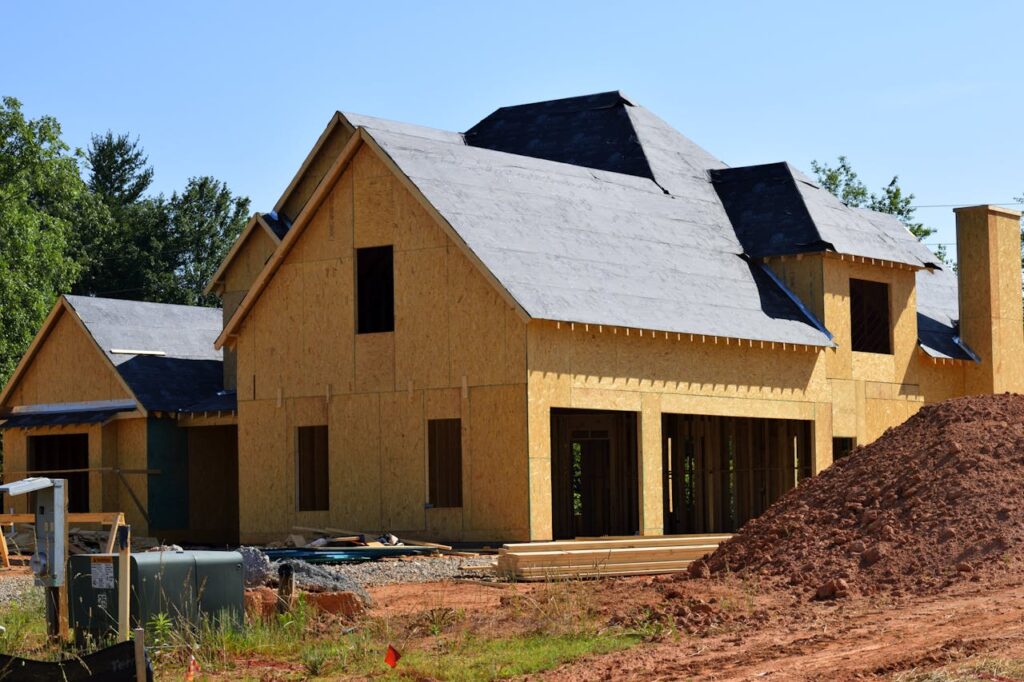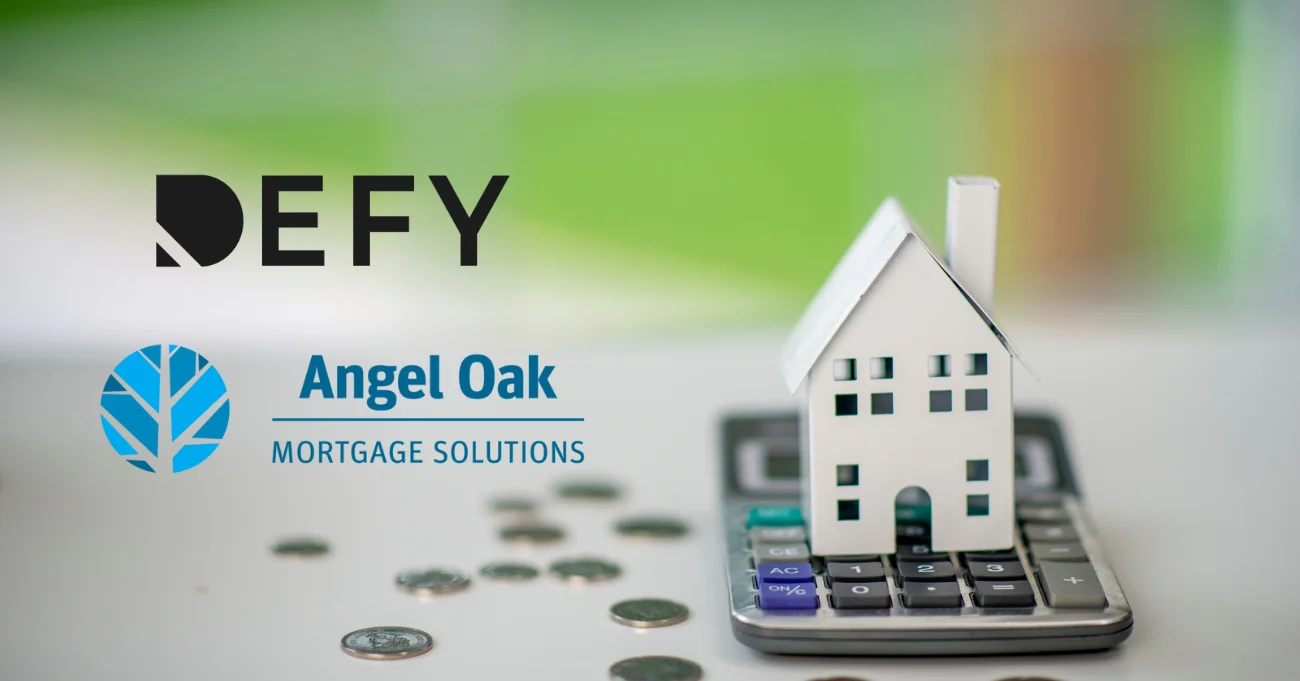Building Your Dream Home Made Easy With California Construction Loans
Have you ever imagined of building your dream home on the sunny Golden State coast or among towering redwood trees? You can make this dream into a reality with California construction loans. While navigating financing for such a big project can feel overwhelming, this process can be easy and painless with construction loans. These loans are designed especially for large construction projects, making it the perfect financing option to build your dream home.
In this guide, we’ll be providing all of the information you need to tackle your California construction loan journey with confidence. So, grab your toolbox and get ready to build your dream home!
Please note that we specialize in other non-qm alternatives such as DSCR loans and bank statement loans at Defy Mortgage.
What Is a Construction Loan?
A construction loan is a short-term loan that helps finance large-scale construction projects, such as building a custom home from the ground up or major renovations on an existing home. Construction loans are also classified as a type of non-QM loan (non-qualified mortgage), which means that they aren’t required to follow the strict lending criteria set by the Consumer Financial Protection Bureau (CFPB). Because of this, construction loan lenders aren’t required to check a borrower’s traditional income documents, like tax returns, W2s, and pay stubs.
Please note that we currently do not offer residential ground-up construction loans from primary residences at Defy Mortgage, and we do not provide owner-builder loans for primary residences. Builder approvals are required for select financing options for primary residences.
How Does a Construction Loan Work in California?
A construction loan provides funding for a project in stages as the project progresses. The loan is structured this way to prevent misuse of the funds, protecting the lender by making sure the money is being used for its intended purpose. During the construction phase, the payments required are interest-only. Once the construction is complete, you can either sell the property and use the proceeds to repay the remaining balance of the loan or refinance it to a longer-term mortgage if you plan to keep it.

Who Should Consider Getting a California Construction Loan?
Anyone who wants to build their dream home or plan to do extensive renovations on their current home should consider getting a California construction loan. This includes, but is not limited to:
- Individuals who want to build a custom home
- Individuals who own land and want to build a property on it
- Both beginner or experienced real estate investors
- Property developers or builders
- Home flippers
Where Can You Get a California Construction Loan?
Getting a California construction loan is easy. Plenty of private mortgage lenders offer them, as well as some banks and credit unions. Private mortgage lenders, like Defy, typically specialize in alternative lending products, like P&L loans, so they can help you navigate the process easily and with confidence.
Construction Loans Compared To Other Similar Loan Types
When compared to similar loan types, there are some key differences that make construction loans unique. Below, we outline the differences between construction loans and conventional loans, as well as construction loans and fix-and-flip loans.
Construction Loans vs. Conventional Loans
Construction loans and conventional loans have completely different structures. Construction loans are short-term, non-QM loans that are used for large construction projects, including ground-up construction and major renovations. Qualification is based on historical experience and construction plans, rather than traditional income documents.
Switching gears to conventional loans, these are long-term, QM loans (qualified mortgages) that are used to purchase existing homes, typically primary residences. Since QM loans need to follow CFPB’s lending criteria, borrowers need to show proof of income using documents like W2s, pay stubs, and tax returns.
Construction Loans vs. Fix-and-Flip Loans
Construction loans and fix-and-flip loans are similar in a few different ways – they’re both short-term financing options, non-QM loans, and considered under the umbrella of “construction loans.” The main difference lies in their intended purposes.
Construction loans are used to finance ground-up construction projects and large-scale renovations. On the other hand, fix-and-flip loans are used to buy a property, renovate it quickly, and then sell it for a profit.

Qualification Requirements for California Construction Loans
Exact qualification requirements for a California construction loan will vary depending on the lender since each lender can set their own criteria.
Defy specializes in alternative financing like DSCR loans and other non-qm lending options offering flexible solutions for borrowers who don’t fit the traditional mold. Schedule a free consultation or call us at (615) 622-1032 and one of our mortgage experts would be happy to help!
California Construction Loan Interest Rates
Interest rates for California construction loans depend on several factors, such as your credit score, the lender, and prevailing market rates. These rates may be slightly higher than conventional rates, but will fluctuate in a similar pattern as the market changes. Although a slightly higher interest rate isn’t ideal, the tradeoff may be worth it for the potential to build or renovate your dream home.
California Construction Loan Alternatives
Construction loans can be a great choice for those looking to build a custom home or extensively renovate their current home. However, they may not be for everyone. A great feature of non-QM loans is that they’re flexible and are able to accommodate a wide variety of borrowers. Below, we’ve listed a few other non-QM loan options to consider if construction loans aren’t right for you:
- Fix-and-Flip Loans: Get financing for property flipping projects.
- Fix-and-Hold Loans: Get financing to renovate a property that you plan on keeping for a bit longer.
- Bank Statement Loans: Use your bank statements to qualify.
- Profit & Loss (P&L) Loans: Use your business’ P&L statements to qualify.
- DSCR Loans: Use your rental income to qualify.
If you still don’t know which loan option would work best for you, contact us at Defy and we can help! Several non-qm loan options other than construction loans and more.
Pros and Cons of Getting a California Construction Loan
Pros:
- Value after construction has to the potential to be higher than expected
- Opportunity to build your dream home from the ground up
- Interest-only payments required during construction
- No tax returns, W2s, or pay stubs required
- Faster approval process
Cons:
- Can have slightly higher interest rate
- Potential risk of project delays due to contractor issues, weather, or unforeseen circumstances
- Short-term financing means you’ll have to refinance to a longer-term loan if you plan to keep the property
Tips for Getting a California Construction Loan
Getting a construction loan and building your dream home may seem overwhelming at first, but if you’re well-prepared, things can go much more smoothly than you think. Here are some tips to help you get prepared to build your dream house:
- Create a detailed budget outlining construction costs, permit fees, and unexpected expenses
- Have a construction plan drafted with blueprints, a work breakdown structure, and a construction schedule
- Get quotes from reputable builders with a solid track record
- Organize your finances by getting the down payment ready and gathering necessary documents
- If required, boost your credit score to try to secure a lower interest rate

California Construction Loan FAQs:
- What are construction loans?
Construction loans are a type of short-term financing that’s used to fund the construction of either building a new home from the ground up or major renovations to an existing home.
- How do construction loans work?
Instead of getting funds upfront in a lump sum, construction loans have funds released in disbursements. As the project progresses, funds are provided to cover the next stage. This helps the lender to ensure that the money is being used for its intended purpose.
- Can you get a construction loan for renovations?
Yes, you can get a construction loan for extensive renovations. Typically, these renovations need to significantly increase the value of the property.
- Is the cost of land covered with a construction loan?
Yes, the cost of land can be covered with a construction loan. On top of that, the loan can also cover the costs of permits, materials, and labor to complete the project.
- How do you get a California construction loan?
Getting a California construction loan doesn’t have to be complicated. Here are some general steps to take if you’re looking to get a construction loan:
- Research lenders that offer construction loans in California
- Gather your documents and evaluate your personal finances
- Apply for a pre-approval
- Find the perfect plot of land and have construction plans drafted
- Formally apply for the loan
- Wait for the lender to evaluate your eligibility and underwrite the loan
- Pay closing costs and down payment once the loan is approved
- Begin construction!
- Where can I get a construction loan?
Construction loans are available from private mortgage lenders, as well as some banks and credit unions. When it comes to shopping for a construction loan, private mortgage lenders, like Defy, tend to be more experienced with specialized loans. Keep in mind that we offer other alternative options in the non-QM space though. Choosing a private mortgage lender can help make the application and closing process much smoother.
- What are the interest rates for construction loans?
Interest rates for construction loans can vary greatly between lenders and may depend on your credit score and market factors. Similar to standard mortgage rates, construction loan rates tend to fluctuate with the market.
- What credit score do I need to qualify for a California construction loan?
Exact credit score requirements for a California construction loan depend on the lender. Usually lenders require a minimum FICO score of 620 or above to qualify for our construction loans.
- How big of a down payment do I need for a California construction loan?
The down payment amount that’s required for a California construction loan varies depending on the lender and your qualifications. However, you can expect to put down anywhere between 15-30% of the estimated construction costs.
- What are the qualification requirements for a California construction loan?
The qualification requirements for a California construction loan vary depending on the lender.
- Are tax returns required to qualify for a construction loan?
No, tax returns aren’t required to qualify for a construction loan.
- What’s the difference between construction loans and conventional loans?
Construction loans and conventional loans are structured quite differently. Construction loans are considered non-QM loans (non-qualified mortgages) that are used to fund ground-up construction projects or extensive home renovations. These funds are released in installments to make sure that the money is being used for its intended purpose. Conventional loans are QM loans (qualified mortgages) that are used to fund purchases of existing, completed homes.
- What’s the difference between construction loans and fix-and-flip loans?
Technically, fix-and-flip loans are a type of construction loan, but their purposes differ. Construction loans are for large-scale projects, such as building a custom home from scratch or major renovations on an existing property. Fix-and-flip loans are designed for real estate investors who are looking to buy a property, renovate it quickly, and sell it for a profit.
- Where is the cheapest place to build a house in California?
There’s no single “cheapest” place to build a home in California since costs can vary depending on many different factors. However, here are some areas that are generally more affordable for building:
- Central Valley: Cities like Fresno, Bakersfield, and Stockton.
- Inland Southern California: Areas further inland like Victorville or Hemet.
- Northern California: Regions north of Sacramento like Redding or Chico.




